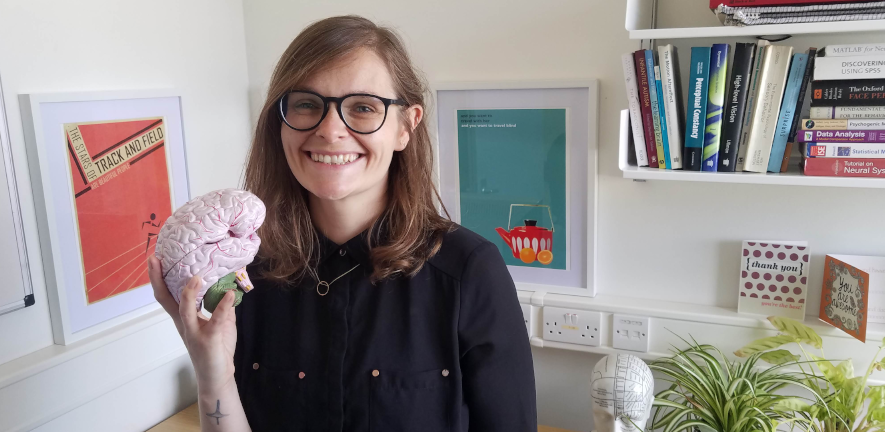
Submitted by Susana Camacho on Thu, 11/05/2023 - 13:30
The University of Cambridge is to host one of the new Wellcome Mental Health Awards in the School of Biological Sciences, Department of Psychology. The Principal Investigator – Dr Rebecca Lawson – will lead an interdisciplinary team of researchers in a six-year programme of research to study the mechanisms that underlie the treatments for common mental health conditions such as anxiety.
Uncertainty is a powerful stressor. In uncertain situations people struggle to predict what will happen next, which can make anything seem like a threat. Dr Lawson believes that differences in how the brain processes uncertainty may be the key to the emergence and treatment of anxiety.
“Uncertainty in early life, caused by neglect, abuse and insecure environments is a known predictor of later mental health difficulties” said Dr Lawson. “The key role of uncertainty in maintaining mental health has never been more apparent than during the pandemic. People couldn’t predict what was going to happen day to day because the situation was rapidly evolving. Mental health suffered across the globe”.
The research team are investigating whether the neural circuits that represent uncertainty are central to how both psychological therapies and antidepressant medications are effective in treating mental health problems. This requires silo bursting efforts across disciplines. The co-investigators include experts in psychopharmacology (Jeff Dalley; Psychology/Psychiatry), health psychology (Stephanie Archer; Psychology/Public Health), experimental medicine (Camilla Nord; Cognition & Brain Sciences Unit), clinical psychology (Anna Bevan/Tim Dalgleish; Cognition & Brain Sciences Unit) and computational neuroscience (Chris Mathys; Aarhus University).
“We’ll be testing the same neural mechanisms across both antidepressant medication and also psychological therapies. This is a very exciting prospect and spans the entire translational pathway from preclinical work in rodents right up to a clinical trial in humans”, said Dr Lawson.
The Wellcome Mental Health Awards are part of a large-scale targeted funding effort from Wellcome to fund transformative research that contributes to a world where no one is held back by mental health problems. This vision is aligned with the research priorities in the School of Biological Sciences, which has identified mental health as a Grand Challenge Topic, building capacity in this vital space via a network of researchers to improve the linkage of biological mechanisms with social and environmental drivers of poor mental health.
Central to both is the involvement of lived-experience perspectives in shaping the research priorities, plans and impact. Dr Lawson noted that “The inclusion of lived-experience voices is central to the success of our project and we have planned a series of co-produced research outputs throughout the lifecycle of this Wellcome Mental Health Award that will shape the direction and the scientific decision-making as the work progresses”.
The announcement of this award is especially timely given that ‘anxiety’ is the theme for this year's Mental Health Awareness Week (15th – 21st May). Through this research Dr Lawson hopes to better understand why common treatments for anxiety work which primes the field for personalised approaches to predict who might benefit most from medication, psychological therapy or a combination of both.
Read more about this Wellcome’s Mental Health Awards on the funder’s website

